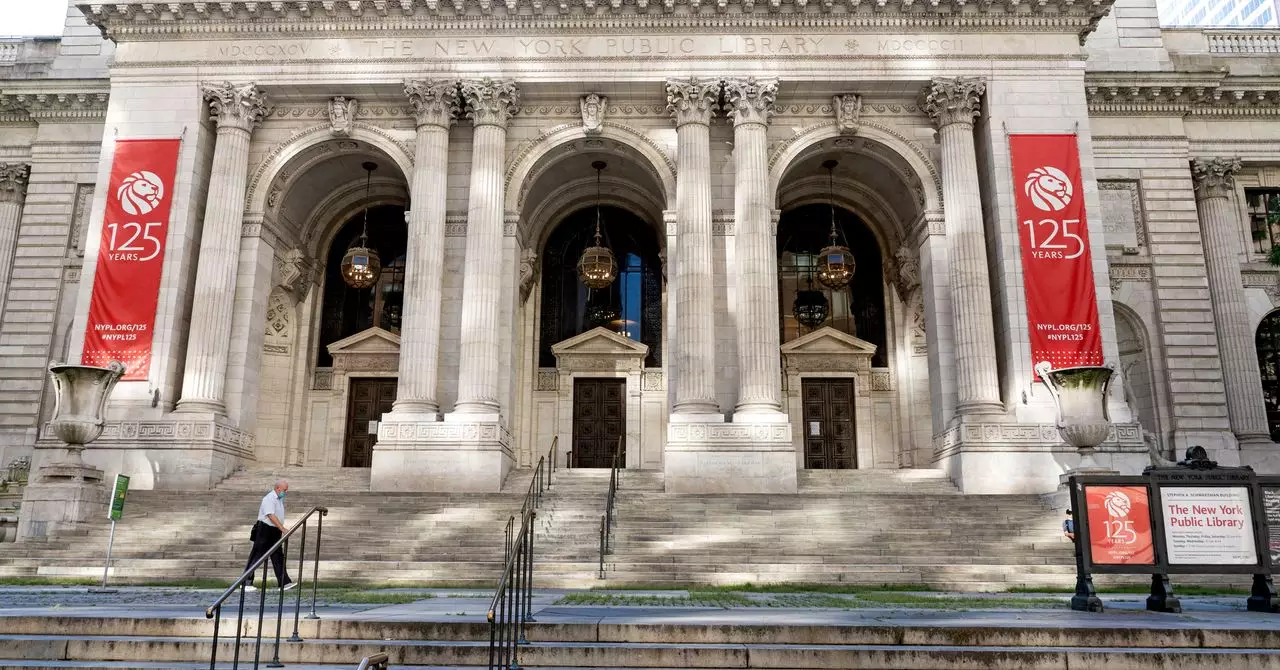In an era characterized by polarized politics and stark ideological divides, the cultural institutions that serve as pillars of community enrichment and education are facing unprecedented challenges. The recent gutting of the Institute of Museum and Library Services (IMLS) highlights how easily the backbone of public engagement can be compromised. With its funding slashed and nearly all its staff placed on paid leave, this vital agency’s mission to foster educational resources and cultural programming is now in jeopardy. The nexuses of knowledge and creativity—our libraries and museums—are being forsaken under the guise of government efficiency.
A Disconnected Directorate
The decision to dismantle the IMLS does not merely reflect a bureaucratic decision; it represents a disturbing trend towards valuing efficiency over equity. Appointing Keith Sonderling, a deputy secretary of labor, as the agency’s acting director illustrates a troubling disconnect between those leading government initiatives and the communities affected by their decisions. The implications of stripping resources from institutions that offer crucial support are dire. They extend beyond mere budgetary constraints; they threaten the very fabric of our society’s educational framework. When key personnel are no longer allowed to perform their roles, the various programs designed to stimulate learning and curiosity wither.
Despite the agency’s annual budget hovering under $1 per capita in the United States, the potential impact of this funding is enormous. With IMLS distributing over $269.5 million last year, any disruption in these allocated funds can have catastrophic effects on local libraries and museums—places where children first experience the joy of reading and adults uncover a deeper understanding of history and culture. The loss of staff means that checks can’t be processed, previously awarded grants risk termination, and states are suddenly deprived of funding essential for cultural initiatives.
Communities at Risk
Public libraries and museums are more than just repositories of knowledge; they are communal hubs where creativity blossoms and diversity is nurtured. The situation is particularly precarious for organizations that depend heavily on IMLS funding to sustain transformative programs. Field trips that educate students on art, history, or science directly benefit from federal support—which is now at risk. For instance, a small art museum in Idaho aimed to fund trips that would allow youth to engage with art directly. Financial backing for workshops focused on weaving and fiber art in North Carolina was another example of how local cultural programming is intertwined with federal funding.
Moreover, the IMLS grants allow indigenous communities in California to procure books and digital resources that resonate with their cultural narratives. These programs serve as a lifeline, preserving and sharing cultural heritage in ways that enrich our national tapestry. The erasure of such programs elevates broader societal issues, particularly those concerning access to information and cultural representation.
Impact on the Future Generations
The overarching narrative emphasizes a pressing individual’s need for government-backed cultural resources to cultivate responsible citizenship. This encompasses the deliberate nurturing of young minds, shaping their perspective on what American exceptionalism embodies. Nonetheless, sacrificing funds for libraries and museums in pursuit of broader fiscal efficiency undermines intellectual curiosity and opportunity—a significant shortfall for future generations.
Regular access to digital tools, like the ebook app Libby, is among the casualties. As digital literacy becomes indispensable, depriving communities of such resources places them at a distinct disadvantage in an increasingly online world. Whether it’s students preparing for their competitive futures or seniors seeking lifelong learning opportunities, the denial of this access restricts growth.
A Call to Action
In times like these, one cannot ignore the critical dialogue necessitated by such actions. People must advocate for the safeguarding of libraries and museums. These institutions serve not just as cultural beacons in our communities but as vital segments of a democratic society where everyone deserves a voice. Now more than ever, it is crucial to recognize that cultural funding is an investment in our collective future instead of mere expenditure. It’s high time communities rally to reclaim their libraries and museums—spaces meant to illuminate the path forward through education, creativity, and inclusiveness.

